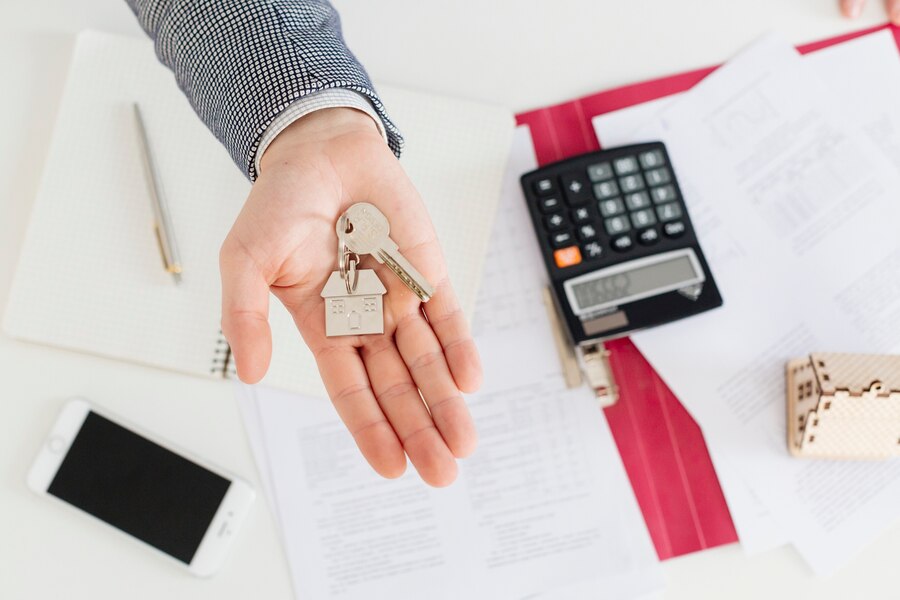Buying or selling a property in the Balearic Islands involves a series of fiscal obligations that must be understood to avoid legal and economic problems. These buying and selling property taxes vary depending on the type of property (new or second-hand), as well as the autonomous community, in this case, the Balearic Islands. In addition to taxes, there are other costs associated with the real estate transaction that need to be considered. Below, we break down the most relevant taxes affecting both the purchase and sale of a property in the Balearic Islands.
Taxes when Buying a Property in the Balearic Islands
When you decide to buy a property in the Balearic Islands, it is crucial to understand the real estate transaction taxes that apply in each case, whether for new or second-hand homes.
- Property Transfer Tax (ITP): This is the main tax the buyer pays when acquiring a second-hand property. In the Balearic Islands, ITP rates range from 8% to 13% of the property’s price, depending on its value. The higher the property’s price, the higher the percentage the buyer must pay.
- Value Added Tax (VAT): For new properties, instead of ITP, the buyer must pay VAT at a rate of 10% on the sale price. This tax applies to new homes and the first delivery of homes by a developer.
- Stamp Duty (AJD): This tax applies when notarizing documents, such as the deed of sale. In the Balearic Islands, the tax rate is 1.2% of the property’s value.
- Municipal Capital Gains Tax (Plusvalía Municipal): This tax is paid by the seller, but it affects real estate transactions, as it is calculated based on the increase in land value since the last transfer. Although the seller typically bears this cost, some purchase agreements may stipulate that the buyer pays it.
Taxes when Selling a Property in the Balearic Islands
The taxes on selling a house in the Balearic Islands may vary depending on whether the sale generates a capital gain. Understanding these taxes is crucial to avoid surprises and properly manage the sale process.
- Municipal Capital Gains Tax (Plusvalía Municipal): Just like when buying, the seller is responsible for paying this tax, which is calculated based on the land value increase since the last transaction. The land’s cadastral value and the years that have passed since the last sale are the determining factors. This tax must be settled at the relevant Town Hall.
- Personal Income Tax (IRPF): If the sale of the property generates a capital gain, the seller must include it in their IRPF declaration. The capital gain is calculated as the difference between the sale price and the adjusted acquisition price, and it is subject to the applicable tax rates, ranging from 19% to 28%, depending on the amount of the gain.
What Taxes Does the Buyer Pay in a Property Sale?
The buyer of a property in the Balearic Islands is responsible for paying the following taxes:
- ITP if the property is second-hand, or VAT if it is new.
- AJD when formalizing the public deed before a notary.
- Other additional costs include notarial fees and property registry expenses, which are generally borne by the buyer.
What Costs Are Involved in Selling a House and Buying Another?
Costs in a real estate transaction include:
- Taxes on purchase: The buyer must pay ITP or VAT, depending on the type of property. In addition, they must pay AJD.
- Taxes on sale: The seller must pay Municipal Capital Gains Tax and taxes on the capital gain through their IRPF declaration.
- Notarial and registration fees: Both the buyer and seller must pay notarial fees and property registration costs, although these are usually borne by the buyer.
What Taxes Are to Be Paid When Buying a House?
The buyer of a property in the Balearic Islands must mainly face two taxes: ITP for second-hand properties or VAT for new homes. In addition, AJD must be paid, along with notarial fees and other administrative expenses associated with the transaction.
What is ITP and Who Pays It?
ITP is the Property Transfer Tax and applies when acquiring a second-hand property. This tax is paid by the buyer and varies depending on the property’s value. In the Balearic Islands, the tax rate ranges from 8% to 13%, depending on the property’s value.
Who Pays the Taxes on the Sale of a Property?
In general, the seller is responsible for the taxes related to the sale of the property, such as Municipal Capital Gains Tax and taxation on the capital gain in their IRPF declaration. However, in terms of the purchase and sale transaction, it is the buyers who must pay ITP or VAT, depending on the situation.
How Can I Pay Less to the Tax Authorities When Selling a Property?
There are several ways to reduce the taxable base in the IRPF when selling a property, such as applying deductions for improvements made to the property, including expenses related to the purchase and sale, and adjusting the acquisition price with transmission expenses and improvements made to the property. The help of a specialized tax advisor can be crucial to optimize this tax burden.
Who is Not Required to Pay ITP?
People who purchase newly built properties are not required to pay ITP, as this tax only applies to second-hand properties. Instead, they must pay VAT. There are also certain exemptions for specific cases, such as the acquisition of homes by people with disabilities, among others.
Taxes to Keep in Mind in the Purchase and Sale of Properties in the Balearic Islands

The buying and selling of properties in the Balearic Islands involves a series of taxes that need to be known and managed properly to avoid legal and fiscal complications. ITP, VAT, IRPF, and Municipal Capital Gains Tax are the main taxes affecting both buyers and sellers in these transactions.
Consulting with a specialized lawyer in real estate transactions is essential to ensure all fiscal regulations are properly followed and no issues arise during the buying and selling process. If you have doubts about how to handle property purchase and sale taxes, don’t hesitate to contact us so we can help you optimize the transaction costs.




